


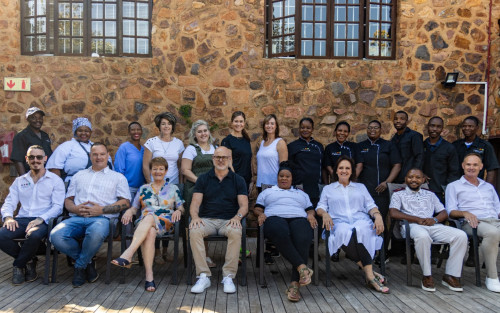





Freeman House Recovery
This provider's information has been quality-checked by Recovery.com's Research Team for accuracy and completeness, including center verification through appropriate third-party organizations.
Treatment Focus
This center primarily treats substance use disorders, helping you stabilize, create relapse-prevention plans, and connect to compassionate support.
Primary Level of Care
Offering intensive care with 24/7 monitoring, residential treatment is typically 30 days and can cover multiple levels of care. Length can range from 14 to 90 days typically.
Treatment Focus
This center primarily treats substance use disorders, helping you stabilize, create relapse-prevention plans, and connect to compassionate support.
Primary Level of Care
Offering intensive care with 24/7 monitoring, residential treatment is typically 30 days and can cover multiple levels of care. Length can range from 14 to 90 days typically.
Private Pay
You pay directly for treatment out of pocket. This approach can offer enhanced privacy and flexibility, without involving insurance. Exact costs vary based on program and length of stay. Contact the center for specific details.
Freeman House Recovery
Freeman House Recovery
About Freeman House Recovery
Consistently praised on Google for their transformative results, Freeman House Recovery immerses clients fully in recovery from substance use—including ketamine addiction—as well as self-destructive behaviours like gambling, gaming, shopping, and workaholism. From their upscale lodge in the mountains, they provide individualized primary inpatient treatment including medically supervised detox for up to 23 clients at a time, prioritizing each person’s joy and healing.
Embrace a Holistic Approach to Recovery
Freeman House Recovery integrates cognitive behavioural therapy (CBT), dialectical behaviour therapy (DBT), and trauma counselling to address both substance use and underlying mental health conditions. Through 3 weekly individual sessions, twice-daily group sessions, and the 12 Steps, clients learn to manage cravings and intense emotions as well as gain insight into how to modify their thoughts and behaviours. Programs also incorporate yoga, breathwork, martial arts, physiotherapy, art, woodworking, gardening and birdwatching.
Develop Self-Awareness and Resilience
At Freeman House Recovery, addiction recovery extends beyond breaking free from substance use. Their focus on positive self-development is integral to this journey. Programmes emphasize shifting from a victim mindset to an empowered one, helping clients take responsibility for their choices, prepare to face challenges, and set personal growth goals.
Boost Well-Being with Comfort and Privacy
Freeman House Recovery offers private and shared rooms with comfortable beds, soothing décor, and some with balconies and spectacular views. Men and women are housed separately, and the lodge features 24-hour security. Clients enjoy gourmet meals, tranquil gardens, a pool, gym, sauna and cold plunge, and barbecue area. Cell phone use is permitted twice weekly (three times for foreigners), with accommodations available for clients needing additional phone access for work-related responsibilities.
Highlights from the Center
Highlights
These highlights are provided by and paid for by the center.
On-site Medical Detox
Private Rooms Available
Unique Cultural Experiences
Budget Friendly
Center Overview
Treatment Focus
This center primarily treats substance use disorders, helping you stabilize, create relapse-prevention plans, and connect to compassionate support.
Recently helped 7 people via Recovery.com

Recently helped 7 people via Recovery.com
Pricing and Program Length
Estimated Center Costs
The cost listed here ($9,000 - $14,000 USD per month), is an estimate of program cost. Center price can vary based on program and length of stay. Contact the center for more information. Recovery.com strives for price transparency so you can make an informed decision.
Recovery.com Verified Listing
Recovery.com verified that the name, location, contact information and license to operate for this treatment provider are valid and up-to-date.
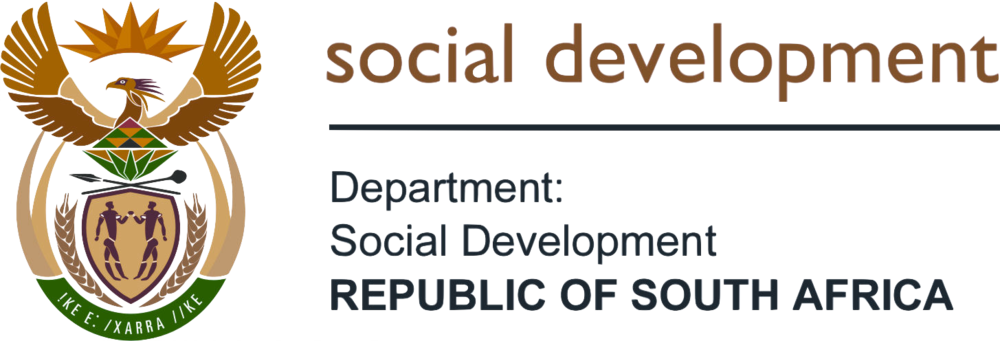
Licensed
Recovery.com is an independent, third-party mental health resource. Verification does not imply endorsement and does not guarantee the quality of treatment services.
Meet your care team

Alan Freeman
Director

Brad Webster
Therapeutic Director
Certified Alcohol & Drug Counsellor (ICADC), Member BAPSA (Board of Addiction Professionals South Africa)

Zipporah Gaven
Clinical Director

Minette Bronkhorst
Administrative Manager
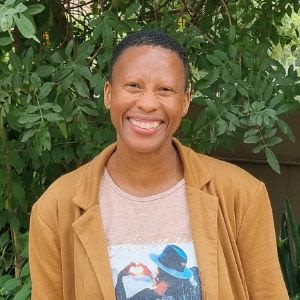
Phalane Radinku
Social Worker

Alida Bonnet
Counselling Psychologist
M.A. Community-Based Counselling Psychology
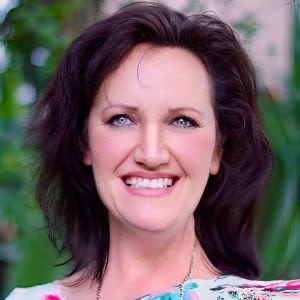
Colleen Muskat
Family Counselor, Senior Addiction Therapist
Level 3 Addiction Counselor and Therapist

Dale De Klerk
Yoga Instructor
Kemetic & Yin Yoga Teacher Training
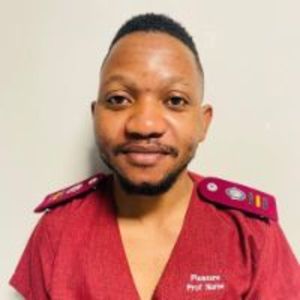
Pleasure Manyama
Staff Nurse
RN (General, Psychiatric & Community)

Mashadi Esther Teane
Chef

Esthé Bester
Personal Trainer
Qualified Personal Trainer at International Sports Science Associations




Treatment
Specializations
Cocaine
Cocaine is a stimulant with euphoric effects. Agitation, muscle ticks, psychosis, and heart issues are common symptoms of cocaine abuse.
Prescription Drugs
It's possible to abuse any drug, even prescribed ones. If you crave a medication, or regularly take it more than directed, you may have an addiction.
Co-Occurring Disorders
A person with multiple mental health diagnoses, such as addiction and depression, has co-occurring disorders also called dual diagnosis.
Adventure Therapy
This experiential approach uses the physical and emotional challenges of outdoor activities as tools for personal growth.
Drug Addiction
Drug addiction is the excessive and repetitive use of substances, despite harmful consequences to a person's life, health, and relationships.
Detox
Detox fully and safely removes toxic substances from the body, allowing the next steps in treatment to begin with a clean slate.
Alcohol
Using alcohol as a coping mechanism, or drinking excessively throughout the week, signals an alcohol use disorder.
Who We Treat
Men and Women
Men and women attend treatment for addiction in a co-ed setting, going to therapy groups together to share experiences, struggles, and successes.
Young Adults
Emerging adults ages 18-25 receive treatment catered to the unique challenges of early adulthood, like college, risky behaviors, and vocational struggles.
LGBTQ+
Addiction and mental illnesses in the LGBTQ+ community must be treated with an affirming, safe, and relevant approach, which many centers provide.
Midlife Adults
For adults ages 40+, treatment shifts to focus on the unique challenges, blocks, and risk factors of their age group, and unites peers in a similar community.
Treatment Services
Residential
In a residential rehab program, patients live onsite, with access to daily treatment and 24-hour care. An average stay is 30-90 days.
Outpatient
During outpatient rehab, patients attend a structured treatment program while continuing to live at home.
Intensive Outpatient Program
In an IOP, patients live at home or a sober living, but attend treatment typically 9-15 hours a week. Most programs include talk therapy, support groups, and other methods.
Detox
Detox fully and safely removes toxic substances from the body, allowing the next steps in treatment to begin with a clean slate.
Approaches
Twelve Step
Incorporating spirituality, community, and responsibility, 12-Step philosophies prioritize the guidance of a Higher Power and a continuation of 12-Step practices.
Holistic
A non-medicinal, wellness-focused approach that aims to align the mind, body, and spirit for deep and lasting healing.
Family Involvement
Providers involve family in the treatment of their loved one through family therapy, visits, or both–because addiction is a family disease.
Minnesota Model
The Minnesota Model encourages abstinence and family-wide healing through the 12-Steps, group therapy, and individualized, psychological treatment.
Individual Treatment
Individual care meets the needs of each patient, using personalized treatment to provide them the most relevant care and greatest chance of success.
Therapies
Physiotherapy
Also called physical therapy, this approach includes exercise and various medical treatments for injury, pain, and disease.
1-on-1 Counseling
Patient and therapist meet 1-on-1 to work through difficult emotions and behavioral challenges in a personal, private setting.
Elephant Therapy
Interacting with these awe-inspiring animals can help you regulate your emotions and practice communication.
Family Therapy
Family therapy addresses group dynamics within a family system, with a focus on improving communication and interrupting unhealthy relationship patterns.
Adventure Therapy
This experiential approach uses the physical and emotional challenges of outdoor activities as tools for personal growth.
Twelve Step Facilitation
12-Step groups offer a framework for addiction recovery. Members commit to a higher power, recognize their issues, and support each other in the healing process.
Psychoeducation
This method combines treatment with education, teaching patients about different paths toward recovery. This empowers them to make more effective decisions.
Conditions We Treat
Post Traumatic Stress Disorder
PTSD is a long-term mental health issue caused by a disturbing event or events. Symptoms include anxiety, dissociation, flashbacks, and intrusive thoughts.
Chemsex
Also called Party 'n' Play (PnP), chemsex refers to using drugs, like methamphetamine, to enhance sexual activity.
Anxiety
Anxiety is a common mental health condition that can include excessive worry, panic attacks, physical tension, and increased blood pressure.
Depression
Symptoms of depression may include fatigue, a sense of numbness, and loss of interest in activities. This condition can range from mild to severe.
Grief and Loss
Grief is a natural reaction to loss, but severe grief can interfere with your ability to function. You can get treatment for this condition.
Codependency
Codependency is a pattern of emotional dependence and controlling behavior. It's most common among people with addicted loved ones.
Obsessive Compulsive Disorder (OCD)
OCD is characterized by intrusive and distressing thoughts that drive repetitive behaviors. This pattern disrupts daily life and relationships.
Pornography Addiction
A person with a porn addiction is emotionally dependent on pornography to the point that it interferes with their daily life and relationships.
Gambling
Excessive, repetitive gambling causes financial and interpersonal problems. This addiction can interfere with work, friendships, and familial relationships.
Internet Addiction
Internet addiction is common among children teens. This compulsive disorder can damage relationships, school performance, sleep habits, and physical health.
Substances We Treat
Cocaine
Cocaine is a stimulant with euphoric effects. Agitation, muscle ticks, psychosis, and heart issues are common symptoms of cocaine abuse.
Prescription Drugs
It's possible to abuse any drug, even prescribed ones. If you crave a medication, or regularly take it more than directed, you may have an addiction.
Benzodiazepines
Benzodiazepines are prescribed to treat anxiety and sleep issues. They are highly habit forming, and their abuse can cause mood changes and poor judgement.
Ecstasy
Ecstasy is a stimulant that causes intense euphoria and heightened awareness. Abuse of this drug can trigger depression, insomnia, and memory problems.
Drug Addiction
Drug addiction is the excessive and repetitive use of substances, despite harmful consequences to a person's life, health, and relationships.
Heroin
Heroin is a highly addictive and illegal opioid. It can cause insomnia, collapsed veins, heart issues, and additional mental health issues.
Synthetic Drugs
Synthetic drugs are made in a lab, unlike plant-based drugs like mushrooms. Most synthetic drugs are either stimulants or synthetic cannabinoids.
Methamphetamine
Methamphetamine, or meth, increases energy, agitation, and paranoia. Long-term use can result in severe physical and mental health issues.
Languages
Aftercare
Experience
Personal Amenities
Amenities
Special Considerations
Healthy Meals are provided
Great food meets great treatment, with providers serving healthy meals to restore nutrition, wellbeing, and health.
Family Member Stays
Treatment providers welcome family members to stay on-site to better the experience and success of patients and their families as a whole.
Flexible technology policies
Centers with flexible technology policies allow professionals to stay in touch with work and give patients a greater sense of connection and normalcy.
Activities
Yoga
Yoga is both a physical and spiritual practice. It includes a flow of movement, breathing techniques, and meditation.
Off-Site Activities
Yoga
Yoga is both a physical and spiritual practice. It includes a flow of movement, breathing techniques, and meditation.
Off-Site Amenities

Recently helped 7 people via Recovery.com
Learn More About the Center
The Powerful Role Denial Plays in Addiction
Understand the psychological power of denial and learn strategies to break its grip.
Exploring The Four Elements That Contribute to Dependency
Delve into the biological, psychological, social, and environmental factors of addiction.
Mindfulness and Meditation: Powerful Tools for Addiction Recovery
Learn about these techniques for handling stress, anxiety, and negative emotions.
Family Support Programs: An Integrative Approach
Find strategies to navigate recovery as a family.
What people are saying
Accommodations
Food & Nutrition
Treatment
Value
Pros
- Very Informative (3)
- Excellent & Effective Treatment Programming (19)
- Friendly & Competent Staff (21)
- Confidential (12)
Cons
- Limited Aftercare (3)
- Limited Time to Work (2)
- Not Enough Time With Therapist (3)
See More
Anonymous
Anonymous
I.v
Liza
Dusan
We love hearing about your treatment experience
Help individuals and families seeking treatment by sharing your first-hand experience with this treatment provider. Review Guidelines.





